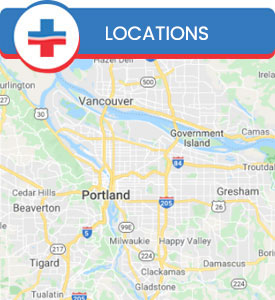What Are the Key Factors in Hypertension Management?
At Columbia Clinic Urgent Care, our specialists offer hypertension management. Successful hypertension management involves a combination of lifestyle changes, such as adopting a healthy diet, regular exercise, and stress reduction techniques. For more information, please contact us or request an appointment online. We have convenient locations to serve you at Tibbetts St, Portland, Stark Street Portland and Tigard, OR.
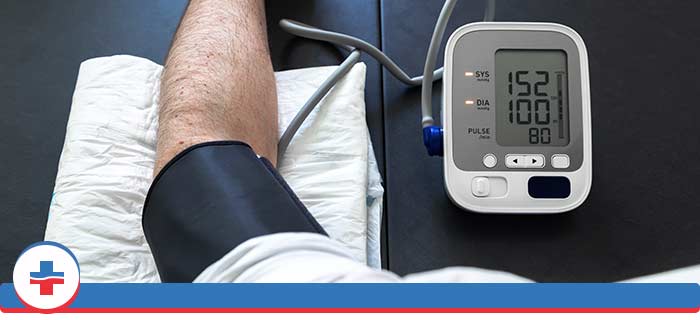
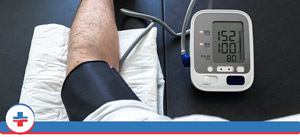
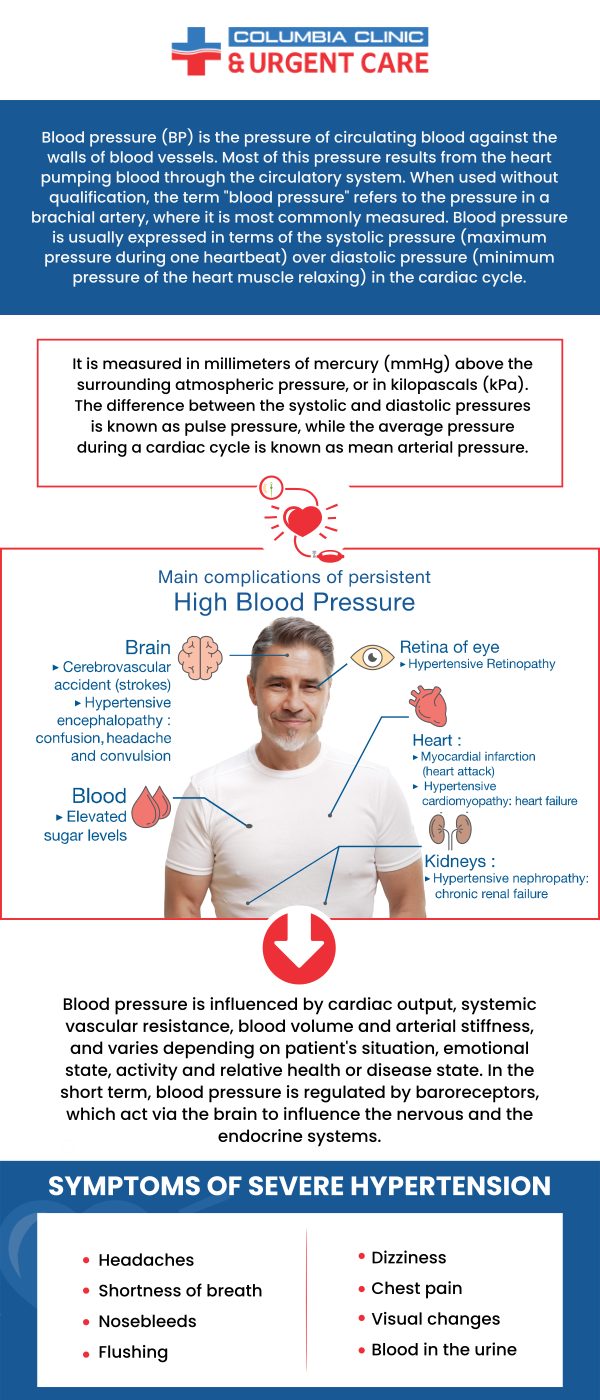
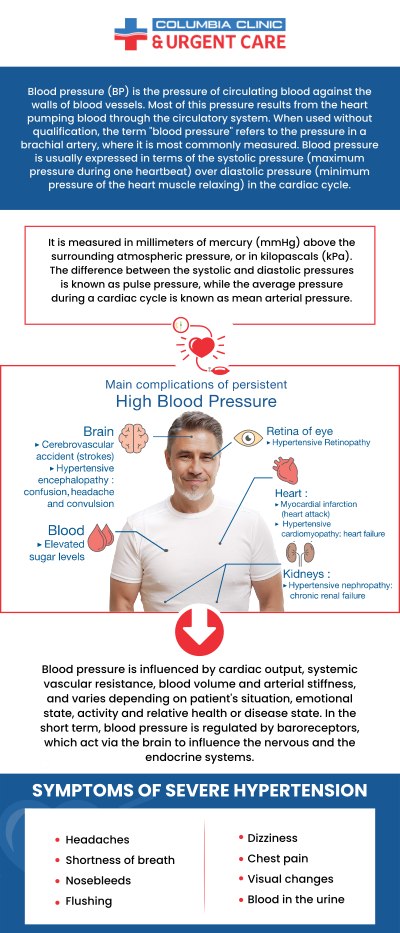
Table of Contents:
What is the main cause of hypertension?
What are the symptoms of hypertension?
What are the 4 stages of hypertension?
How is hypertension managed?
Hypertension is unlike anything else, it does not show any warning signs or showcase any symptoms, and many of our patients who are dealing with hypertension, don’t even know they are. The only way to accurately know if you have hypertension is to measure your blood pressure. High blood pressure develops over a period of time and usually happens due to an unhealthy lifestyle, including not getting enough or any exercise or regular physical activity and having unhealthy eating habits.
Certain conditions can affect high blood pressure including diabetes and obesity, of which can increase your risk of developing hypertension. However, hypertension can also occur and often does in women during their pregnancy.
Hypertension is damaging to your health, especially if it is not taken seriously. It can damage some very important organs including your heart, brain, kidneys, and eyes. In most cases though, our patients can easily manage their hypertension and lower it, which will then lower their risk of any serious health issues.
There are some main symptoms to look out for if you think you may have hypertension or high blood pressure, while these symptoms do not tell if you do for sure have hypertension, they can be an indication to visit your doctor for a physical:
– Nosebleeds
– Severe headaches
– Fatigue
– Confusion
– Chest pain
– Difficulty breathing
– Vision issues
– Irregular heartbeat
– Blood in your pee
– Pounding in the chest, neck, or ears
A few other symptoms that we have noticed which may indicate hypertension, but is not a guarantee include:
– Dizziness
– Sweating
– Nervousness
– Trouble sleeping
– Blood spots in your eyes
– Facial flushing
There are four stages of hypertension, they include:
Normal
Systolic is usually less than 120 mm Hg and diastolic is less than 80 mm Hg. There is no treatment necessary at this stage, but your blood pressure should still be monitored to make sure it stays within the normal range.
Prehypertension
Systolic is usually between 120 to 139 mm Hg, and diastolic is between 80 to 89 mm Hg.
Prehypertension is known as someone who is at the border before they cross the threshold into hypertension, meaning they are at risk of hypertension.
Stage 1
Systolic is usually between 140 to 159 mm Hg and diastolic is 90 to 99 mm Hg. At this stage, there will be management involved of the high blood pressure, and the use of one of a number of different medications to help reduce blood pressure as well as the risk of heart disease and stroke.
Stage 2
Systolic is usually between 160 mm Hg or higher and diastolic is 100 mm Hg or higher. In addition to the lifestyle changes that need to be made, there also may need to be a two-drug therapy recommended to bring the high blood pressure down.
Hypertension can easily be managed if the patient takes control and has a complete lifestyle change. Your doctor may recommend you make the following lifestyle changes including:
– Eating a heart-healthy diet with much less salt intake
– Getting regular physical activity each day
– Maintaining a healthy weight or losing weight if you are considered medically overweight or obese
– Limiting the amount of alcohol, you drink
However, the lifestyle changes your doctor may recommend may or may not be enough to alter the high blood pressure. If the change of diet and exercise is not enough, your doctor may recommend starting medication to help lower your blood pressure.
Any of the below types of medication your doctor may prescribe for your high blood pressure will depend on the blood pressure measurements they received and the patient’s overall health. Medications that may be prescribed for high blood pressure include:
– Diuretics
– Angiotensin-converting enzyme inhibitors
– Angiotensin II receptor blockers
– Calcium channel blockers
– Alpha-blockers
– Alpha-beta blockers
– Beta-blockers
– Aldosterone antagonists
– Renin-inhibitors
– Vasodilators
– Central-acting agent
For more information, please contact us or request an appointment online. We serve patients from Tibbetts St Portland, Milwaukie OR, Oak Grove OR, Stark Street Portland, Fairview OR, Happy Valley OR, Gladstone OR, Cedar Mill OR, Tibbetts Street Portland OR, West Linn OR, Aloha OR, Tigard OR, Lake Oswego OR, Tualatin OR, Oregon City OR.

